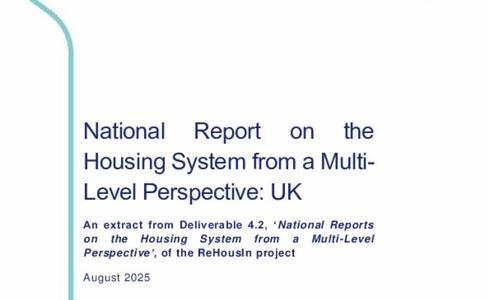National report on the housing system from a multi-level perspective: UK
An extract from Deliverable 4.2 “National reports on the housing system from a multi-level perspective”
From the mid-20th century until the 1980s, the UK housing system focused on decommodification: expanding the housing stock, embracing tenure neutrality, and ensuring provision of subsidies across ownership and rental sectors. This was reinforced by decommodification of housing at the local level, with direct production of SR by local authorities.
This shifted in the 1980s under Thatcher’s government, as welfare restructuring drove recommodification of land and housing. Housing policy favoured private provision over public investment, with weakened local governance – central government removed control from local housing budgets, meaning local authorities increasingly relied on private and non-profit actors to meet their housing provision responsibilities. Re-commodification also targeted land, with planning reforms such as 1990’s Section 106 contributions, making social housing a negotiable share of private development. Other reforms incentivised land transfer to private actors. The 2008 Global Financial Crisis deepened this trajectory, albeit shifting private investment increasingly into rental housing, increasing its financialisation.

Publication date:
Languages: English